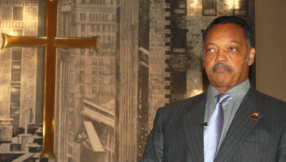Latin American women leaders prepare to discuss feminisation of HIV
Delegates at the conference, organised by the Coalition of Latin American First Ladies Women Leaders, will address the increased feminisation of HIV in Latin America and look more closely at the impact of HIV and Aids on women sufferers in the region, according to a World YWCA report.
Although the prevalence of HIV and Aids in Latin America is relatively low compared with the high rates in many parts of Africa, the number of infected is still substantial enough to prompt the growing concern of the international community.
At the end of 2005 there were around 1.6 million people infected with HIV in Latin America, according to the HIV and Aids charity Avert, and that figure is expected to increase in the next few years.
"We must join each other and design public policies to prevent the HIV epidemic from spreading," said Xiomara Castro de Zelaya, First Lady of Honduras, ahead of Friday's meeting.
According to the YWCA, Honduras is faced with one of the highest HIV infection rates in Latin America as well as a growing number of HIV-infected women.
While rates of HIV infection in Latin America remain highest among men who have sex with men, HIV is believed to be spreading at a worrying rate among women as a result of poverty, lack of education and gender-based violence.
"Eliminating stigma and discrimination, lack of access to health and education, and the violence perpetrated on women" are necessary to reduce women's vulnerability to HIV, believes Ms Zelaya, who is also a member of the leadership council of the Global Coalition of Women and AIDS and founder of the Coalition of Latin American First Ladies and Women Leaders.
The YWCA has been hard at work throughout Latin America to break the stigma attached to HIV and Aids. The YWCA is also running HIV education programmes in nine Latin American countries to raise awareness of the prevention, treatment and care of HIV.
In Belize, the YMCA is enjoying great success in an innovative awareness programme that takes vital information on HIV prevention to individuals through beauty salons and barbershops by training stylists on the issue.
In her opening address at the YWCA International Women's Summit on HIV and AIDS in Nairobi, Kenya in July, the former president of the World YWCA Mónica Zetzsche, stressed, "Women's leadership can change the course of the epidemic."
Ms Zetzsche, from Argentina, will represent the YWCA movement at the high level meeting and is expected to be joined by UN representatives and First Ladies from Mexico, Panama, Guatemala, El Salvador and the Dominican Republic.













